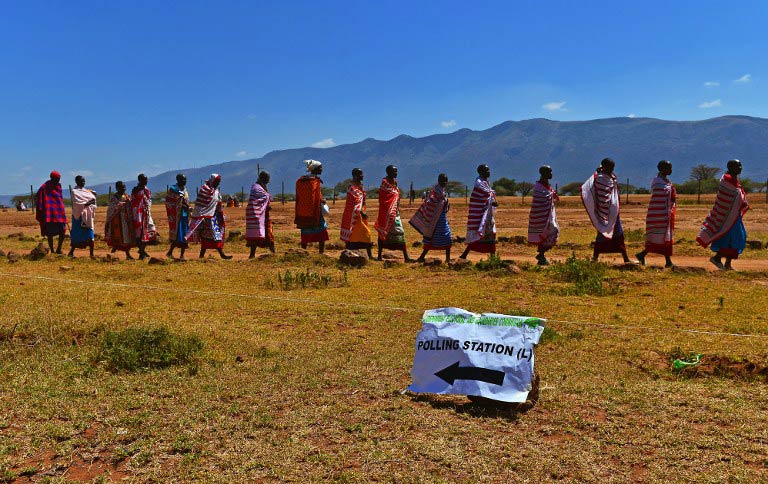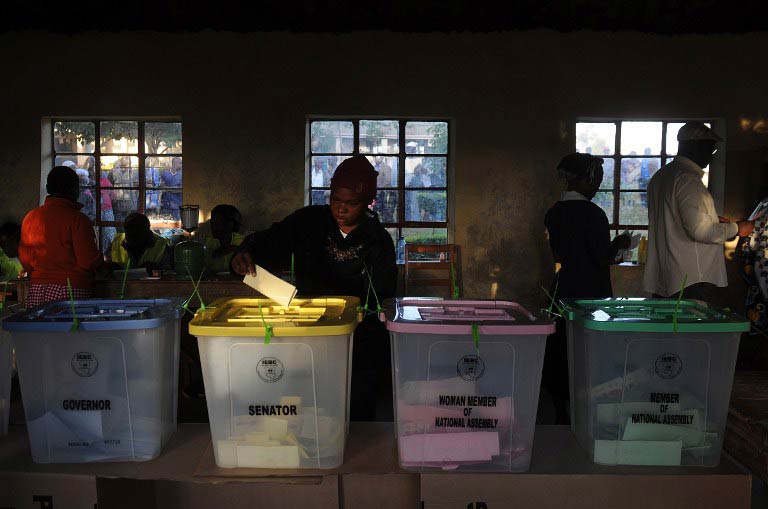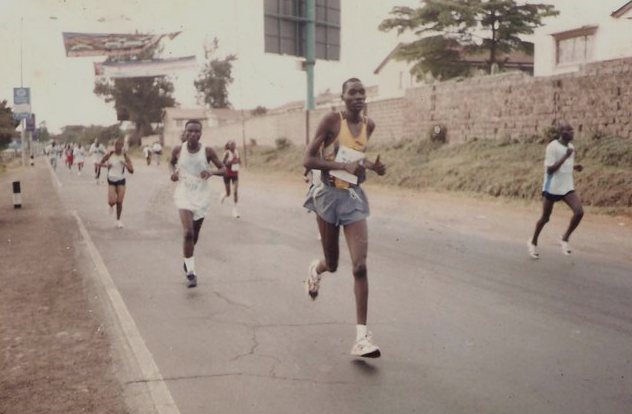I met Lynn (not her real name) a few months ago at a club in town, and we’ve been friends since then. We see each other around, mostly by chance, and our friendship has strengthened. Born to a rich family at the coast, Lynn was educated at a private, “international” school in Mombasa and counted more white friends among her classmates than black Kenyan ones – you can tell by the absence of a Kenyan accent.
She’s bright, no doubt about it, and beautiful, with wild two-inch tufts of bleached blond hair, huge doe eyes, caramel skin and strong, bright white teeth. She could probably make a good living in front of the cameras in Cape Town but when she arrived in Nairobi she couldn’t find a job, so she became what she describes as a ‘chick hustler’ instead. She is only 20 years old and quite good at her job.
I sent her a SMS last week saying I wanted to write a piece about her.
“Sawa” (Okay), she replied, and we arranged to meet the next day.
“What do you want to write about me?” Lynn asks when we sit down, leaning on the table and squinting at me with mock seriousness.
“A true story,” I reply. She’d heard it before. My SMS had mentioned it.
“Why? There’s nothing exceptional about me.”
“Well, you’re hardly ordinary,” I say.
Lynn shrugs and leans over to rest her arm on my leg, her new white Alcatel smartphone in her hand, batting her eyelids and gazing into my eyes as if she had just found Prince Charming.
“Hold on, I’m going to the bank,” she announces suddenly.
She is slim in a Kate Moss sort of way, skinny legs and all. She’s wearing a tight white sleeveless T-shirt, grey tights, and a pair of flat sandals with beads on the top – the kind you get at the various Maasai markets here. She’s got a small grey sling bag and a long striped scarf wrapped around her neck in five shades of grey. It looks like it’s woven from raw silk.
“The system was down when I got here,” she explains as she gets up. “I just need to draw some cash.”
She leaves me at the table, promising she’ll come back. I know Lynn well enough by now to be sceptical, but I wait anyway. Ten minutes later, she’s back. Heads turn to follow her entrance.
“Escort me downtown,” she immediately commands.
“Okay. Where are we going?” I ask, realising that my story is about to slip away.
“Just downtown! I’ve only got a little money. I can’t afford a taxi so I want to get a matatu (minibus taxi) to The Mayfair. It’ll be good there now.”
We leave immediately and take turns to avoid injury in the 5pm traffic rush. As we find a little solace behind the Jamia mosque, she puts her arm around my shoulder as we walk and takes the hand of my far arm, swinging it in front of us. Childlike. We can’t fail to draw attention; the ever-present parking attendants and the Muslims heading for prayer watch this young Kenyan model walking with this older white guy. But there’s a familiarity between us that prompts smiles, not frowns.
We reach the terminus for matatus going to upmarket Westlands but she doesn’t stop there. We walk past the terminus and on to the real downtown part of Nairobi. We continue up the road and deep into the danger zone that lies beyond River Road. Just at the end, she slips into an alley adjacent to a minuscule shop that stocks groceries and motor vehicle spares. I follow. Through the alley, we enter the courtyard of a typically dilapidated Nairobi tenement block. The two-storey block is a courtyard of chipped blue enamel, grimy wire mesh burglar proofing and fresh washing hanging everywhere on makeshift lines.
Lynn heads straight for the back of the courtyard, to a small window in the far left corner. There’s a woman sitting at the base of the staircase in the opposite corner with a baby on her lap. She calls “Fatma!” and there’s a grunt from the floor above.
While Lynn stands at the window, she is joined by an anxious-looking Sikh youth with a black turban on his head, and a guy wearing uniformly dirt-brown clothes. The three of them wait, mute and agitated.
It takes five minutes before Fatma appears, stumbling down the stairs. She’s a mess, her forehead and hairline wet from sweat and it looks like she just had a shot of heroin. She looks Somali. She unlocks the steel gate next to the window, enters, locks it again, and then appears at the window within seconds. She serves the Sikh youth and then has to count the coins proffered by the dirt-brown-clothed guy before he too is served. Only then does Lynn get the little packet that she came for.
Lynn rushes out across the courtyard, through the alley, out, and down the road. Her stride is hard to keep up with but I manage. As we cross the street to the terminus, Lynn, in her rush, nearly gets hit by a bus and shouts at the driver, “Haraka niaje!?” In Sheng – Nairobi Swahili slang – that’s like, “What’s up with the rush, dude?”
“Fuuuuuck, where’s he gonna go?” Lynn asks in redundant reference to the wedged-in traffic that the bus nearly smashed into.
As we reach the terminus, she quickly finds a matatu and gets in.
“We’ll talk some other time,” she says through the window. I shrug and leave, understanding the occasional urgency of someone with a heroin habit.
Twenty minutes later, I get a text message from Lynn.
“Relief! And it’s looking very promising here. A table of 12 white guys at the pool gawking at me each time I walk past. Lol. But I only want one. Wish me luck.”
I SMS back to wish her luck.
After another ten minutes, she replies: “How can I be here and we not allowed to approach men. Unless he comes for you or you are sitting next to him. That’s when you can talk to him but not by getting up and walking to him. Imagine! If it was allowed I’d be a very rich woman tonight!”
It’s obvious that management at The Mayfair has laid down the rules about the behaviour required of ‘Nairobi girls’ when male guests are at the pool area.
At midnight, while writing this, I send her a text message.
“You were lucky tonight?”
Minutes later:
“I got this shit idiot who just wanted to pay me $20. I directed him to K-street. I literally showed him on Google Maps.”
K-street, or Koinange Street, is notorious for Nairobi street hookers.
“Fucking cheap ass is staying in a 300 fucking dollar room!” the message continues.
At 1am, this story nearly done, I send an SMS back:
“Lynn, you’re simply the best! Get lucky!”
But the message isn’t delivered until this morning, after I wake. At 8.25am I get a simple reply, an appropriate conclusion to the tale:
“I was born lucky. I got a guy for $100! ;-)”.
Brian Rath was born and raised in Cape Town. He now lives and writes in Kenya, and has a novel due to be published shortly.





